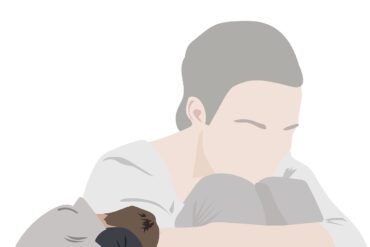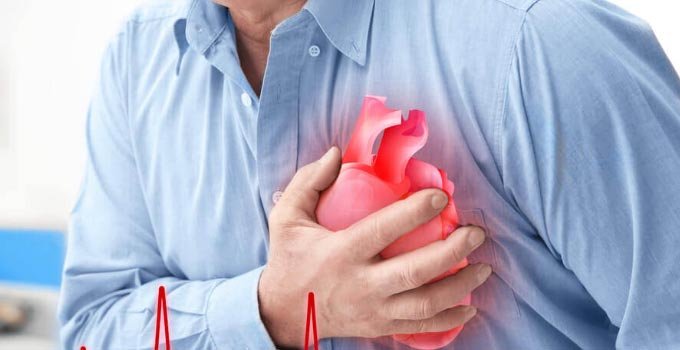Exploring the Symptoms of Anxiety Disorders

Table of Contents
- Introduction to Anxiety Disorders:
- Physical Symptoms of Anxiety:
- Cognitive Symptoms of Anxiety:
- Emotional Symptoms of Anxiety:
- Behavioral Symptoms of Anxiety:
Introduction to Anxiety Disorders
Anxiety disorders are a category of mental health conditions that are characterized by excessive and persistent feelings of fear, worry, and anxiety. These disorders can significantly impact an individual’s daily life, as they often result in strong feelings of distress and apprehension. Anxiety disorders affect millions of people worldwide and can develop at any age.
There are several types of anxiety disorders, including:
- Generalized Anxiety Disorder (GAD): Individuals with GAD experience excessive and uncontrollable worry about various aspects of their life, such as work, health, or family.
- Panic Disorder: People with panic disorder frequently experience intense periods of fear, known as panic attacks, which are often accompanied by physical symptoms.
- Social Anxiety Disorder (SAD): SAD is characterized by an extreme fear of social situations and a constant worry of being embarrassed or judged by others.
- Obsessive-Compulsive Disorder (OCD): Individuals with OCD have persistent and intrusive thoughts, known as obsessions. They often engage in repetitive behaviors, or compulsions, in an attempt to alleviate their anxiety.
- Post-Traumatic Stress Disorder (PTSD): PTSD can develop after experiencing or witnessing a traumatic event. It is characterized by intrusive memories, avoidance, and hyperarousal.
It is important to note that anxiety disorders can vary in severity and symptoms. Some people may only experience mild anxiety that does not significantly impair their daily functioning, while others may struggle with severe anxiety that affects their ability to work, study, or maintain relationships.
Common symptoms of anxiety disorders include:
- Excessive worry or fear
- Feeling restless or on edge
- Difficulty concentrating
- Irritability
- Sleep disturbances
- Physical symptoms such as muscle tension, headaches, or stomachaches
- Panic attacks
- Avoidance of certain situations or places
If you suspect that you or someone you know may be experiencing symptoms of an anxiety disorder, it is advisable to seek professional help. Treatment options such as therapy, medication, and lifestyle changes can effectively manage anxiety disorders and improve overall well-being.
Physical Symptoms of Anxiety
Anxiety disorders can manifest in both psychological and physical symptoms. While the psychological symptoms are often well-known, such as excessive worry, fear, and panic attacks, the physical symptoms are equally important to recognize and understand. Here, we explore the various physical manifestations that can occur as a result of anxiety.
- Rapid Heartbeat: A common physical symptom of anxiety is a racing heart or palpitations. When feeling anxious, the body’s stress response is triggered, leading to the release of stress hormones. These hormones increase heart rate and blood flow, preparing the body for a fight-or-flight response.
- Shortness of Breath: Anxiety can also cause difficulties in breathing, leading to a sensation of being unable to take deep, satisfying breaths. This shortness of breath is often accompanied by a feeling of tightness in the chest.
- Muscle Tension: Chronic anxiety can cause muscles to tighten and become tense, particularly in the shoulders, neck, and jaw. This can lead to muscle aches and pains, as well as headaches or migraines.
- Gastrointestinal Issues: Many individuals with anxiety experience gastrointestinal symptoms, such as stomachaches, indigestion, nausea, and even diarrhea. The gut is highly sensitive to stress and can become disrupted when anxiety levels are high.
- Insomnia: Anxiety often interferes with sleep, making it difficult to fall asleep or stay asleep. Racing thoughts and worries can keep individuals awake at night, further exacerbating feelings of stress and anxiety.
- Increased Sweating: Anxiety can cause excessive sweating, even in situations where physical exertion or heat is not a factor. Sweating may occur on the palms, underarms, or throughout the entire body.
- Feeling Lightheaded or Dizzy: Many individuals with anxiety report feeling lightheaded or dizzy during periods of heightened anxiety. This can be accompanied by a sense of unreality or detachment from the surroundings.
- Changes in Appetite: Anxiety can affect appetite, leading to either an increase or decrease in food intake. Some individuals may experience sudden food cravings, while others may have a loss of appetite.
These physical symptoms of anxiety can vary in intensity and duration among individuals. It is important to note that experiencing these symptoms alone does not mean one has an anxiety disorder, as they can also arise from other medical conditions. However, if these symptoms persist or significantly impact daily functioning, it is advisable to seek professional help and guidance for an accurate diagnosis and appropriate treatment.
Cognitive Symptoms of Anxiety
When it comes to anxiety disorders, there are various cognitive symptoms that individuals may experience. These symptoms are related to a person’s thoughts, perceptions, and overall mental well-being. Understanding and recognizing these cognitive symptoms can help individuals seek appropriate help and support. Here are some common cognitive symptoms associated with anxiety disorders:
- Racing thoughts: People with anxiety often experience a flood of rapid and overwhelming thoughts. This can make it challenging to focus on tasks or relax.
- Excessive worry: Excessive and irrational worry is a hallmark of anxiety. Individuals may find it difficult to control their worrying, causing significant distress.
- Negative thinking: Anxiety disorders often involve negative thinking patterns. People may constantly anticipate the worst-case scenario, leading to heightened stress and anxiety.
- Difficulty concentrating: Anxiety can impair one’s ability to concentrate or pay attention. This can affect job performance, academic achievement, and daily functioning.
- Ruminating: Individuals with anxiety may find themselves trapped in a cycle of rumination, replaying negative experiences or thoughts repeatedly in their minds.
- Memory problems: Anxiety can impact memory function, making it harder to recall information or events. This can lead to frustration and further increase anxiety levels.
- Feeling overwhelmed: Anxiety can make individuals feel overwhelmed by even small tasks or responsibilities, heightening stress levels and further exacerbating anxiety symptoms.
- Heightened sensitivity: Anxiety can make individuals more sensitive to environmental stimuli, causing them to feel easily startled or overwhelmed in situations that others may find less distressing.
If you or someone you know is experiencing these cognitive symptoms along with other signs of anxiety, it is important to seek professional help. Anxiety disorders are highly treatable, and mental health professionals can provide effective therapies and interventions to alleviate symptoms and improve quality of life. Remember, you do not have to face anxiety alone ndash; seeking support is the first step towards finding relief.
Emotional Symptoms of Anxiety
Anxiety disorders can have various emotional symptoms that often impact an individual’s day-to-day life. These symptoms are characterized by intense and prolonged feelings of fear, worry, or unease. Understanding and recognizing these emotional symptoms is crucial for effectively managing anxiety. Here are some common emotional symptoms associated with anxiety disorders:
- Excessive Worry: People with anxiety disorders often experience persistent and excessive worry about various aspects of their lives. This worry is often irrational and disproportionate to the actual situation.
- Fear: Anxiety can cause an overwhelming sense of fear or panic. This fear may be triggered by specific situations, such as social interactions or public speaking, or it may be more generalized.
- Irritability: Anxiety can make individuals more irritable and easily provoked. Small things that wouldn’t typically bother them may become sources of frustration or anger.
- Restlessness: Many people with anxiety disorders experience restlessness or a constant feeling of being on edge. It becomes difficult to relax, and they always feel the need to be doing something.
- Difficulty Concentrating: Anxiety often makes it challenging to concentrate or focus on tasks at hand. Thoughts may become scattered or racing, making it harder to complete everyday activities.
- Feeling Overwhelmed: Individuals with anxiety disorders may feel overwhelmed or inundated by even minor stressors. They may struggle to cope with daily responsibilities or make decisions.
- Depression: Anxiety and depression often go hand in hand. Many individuals with anxiety disorders also experience symptoms of depression, such as persistent sadness, loss of interest, or changes in appetite and sleep patterns.
Emotional symptoms of anxiety can have a significant impact on an individual’s quality of life and relationships. It is essential to seek professional help if these symptoms persist or worsen over time. Mental health professionals can provide various treatment options, including therapy, medication, and self-help strategies, to help individuals manage their anxiety and improve their overall well-being.
Behavioral Symptoms of Anxiety
Anxiety disorders are characterized by a wide range of physical and psychological symptoms. While some of these symptoms may be internal and difficult to observe, others manifest in the form of behavioral changes. Understanding these behavioral symptoms can help identify and manage anxiety disorders effectively. Here are some common behavioral symptoms:
- Restlessness: Individuals with anxiety disorders often experience restlessness, feeling on edge, or having an inability to relax. This restlessness can manifest as fidgeting, pacing, or constantly being on the move.
- Irritability: Anxiety can significantly affect a person’s mood, leading to increased irritability and agitation. Small stressors or trivial issues may provoke an exaggerated response, causing the individual to lash out or become easily frustrated.
- Avoidance: People with anxiety may avoid certain situations or places that they perceive as threatening or triggering. This avoidance behavior helps them reduce immediate anxiety but can also lead to limitations in their daily lives.
- Isolation: Anxiety can make individuals withdraw from social interactions due to fear of judgment or the perceived inability to handle social situations. They may isolate themselves to minimize anxiety triggers or simply to seek comfort in solitude.
- Changes in sleep patterns: Anxiety often disrupts sleep, leading to difficulty falling asleep, staying asleep, or experiencing nightmares. Insomnia or excessive sleepiness during the day may result, further exacerbating stress and anxiety levels.
- Inability to concentrate: Anxiety can impair one’s ability to focus and concentrate on tasks. They may constantly worry or be preoccupied with anxious thoughts, making it challenging to complete work or concentrate on conversations.
- Compulsive behaviors: Certain anxiety disorders can lead to the development of compulsive behaviors or rituals. These rituals act as temporary relief mechanisms to reduce anxiety and may include repetitive actions, such as excessive handwashing or checking behaviors.
It is essential to remember that everyone’s experience with anxiety disorders is unique, and not everyone will exhibit the same set of behavioral symptoms. If you or someone you know shows signs of anxiety, it is vital to consult a healthcare professional for a proper diagnosis and to explore suitable treatment options.


























